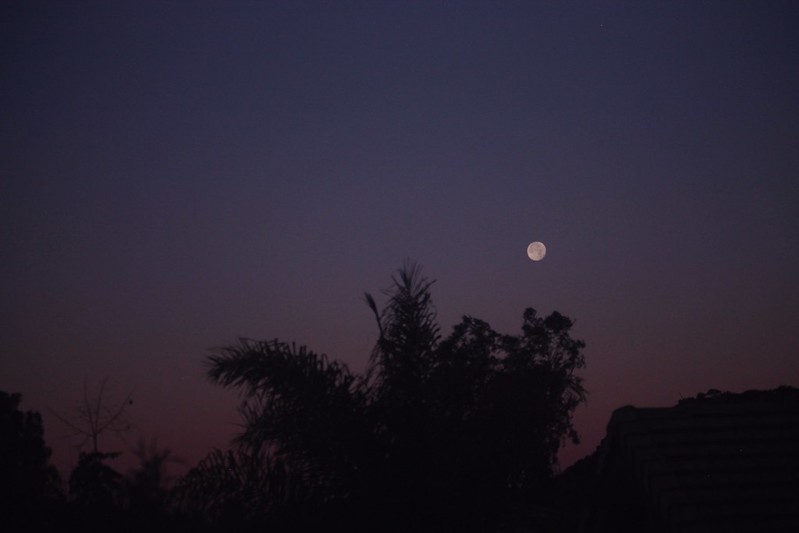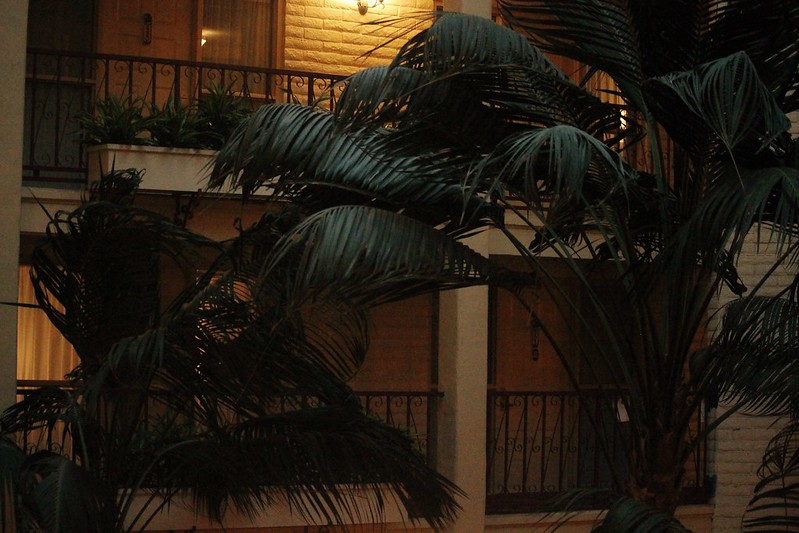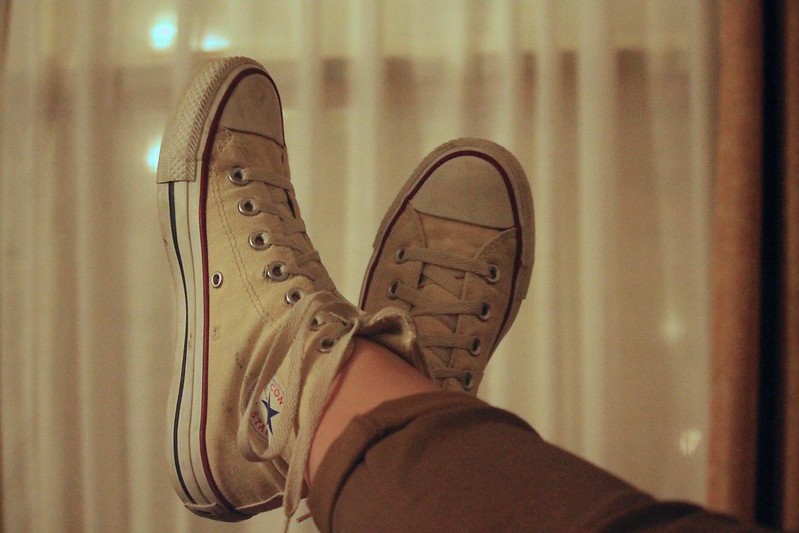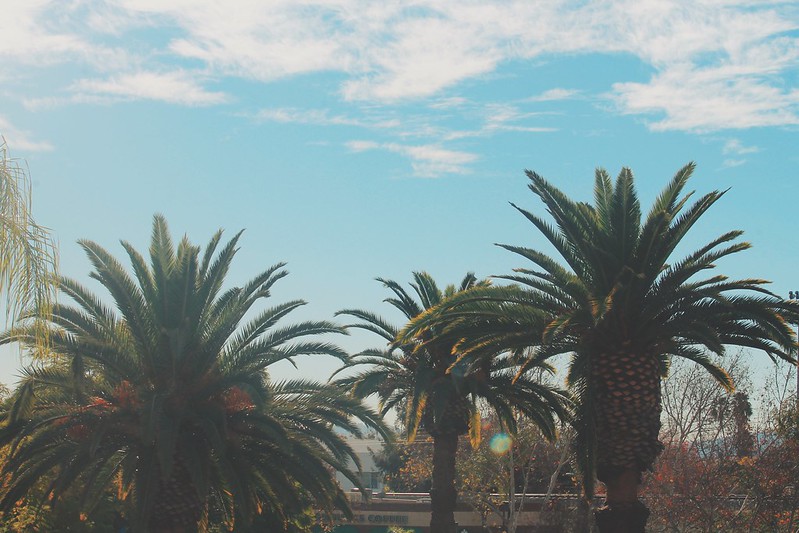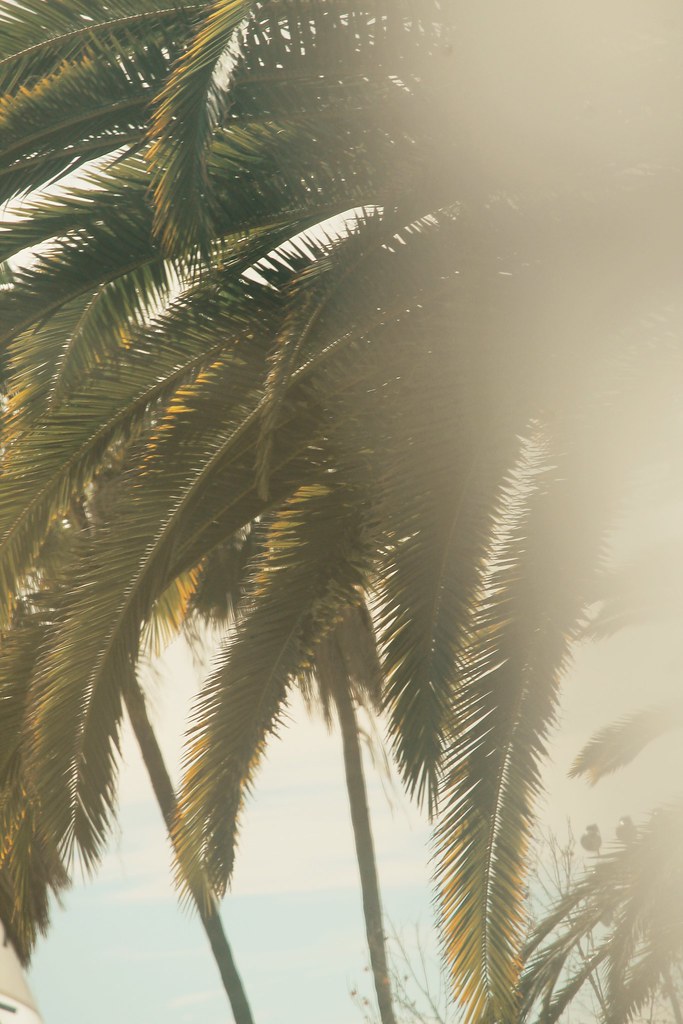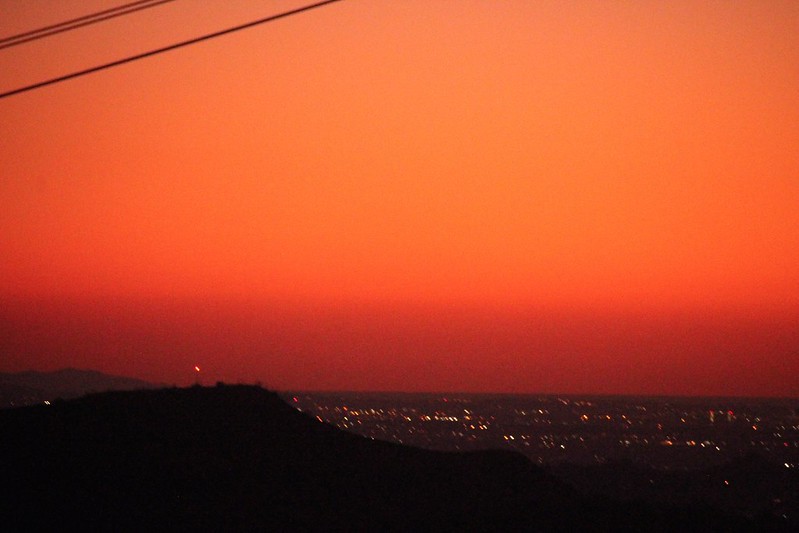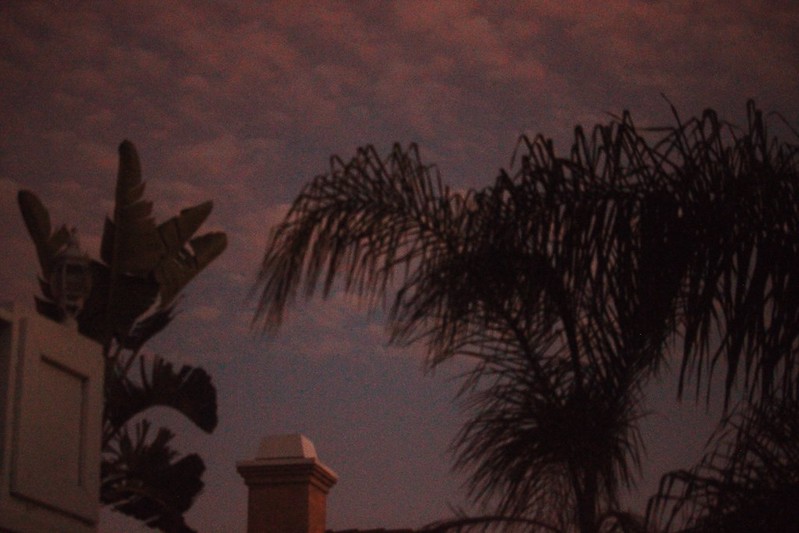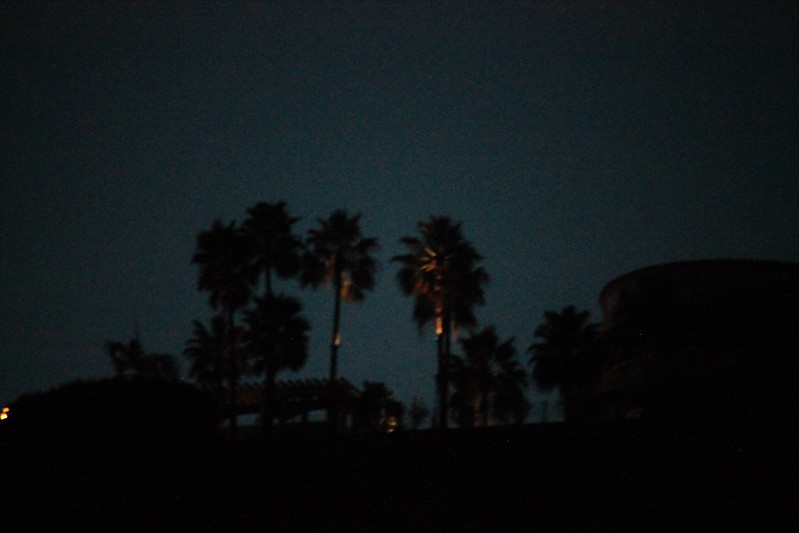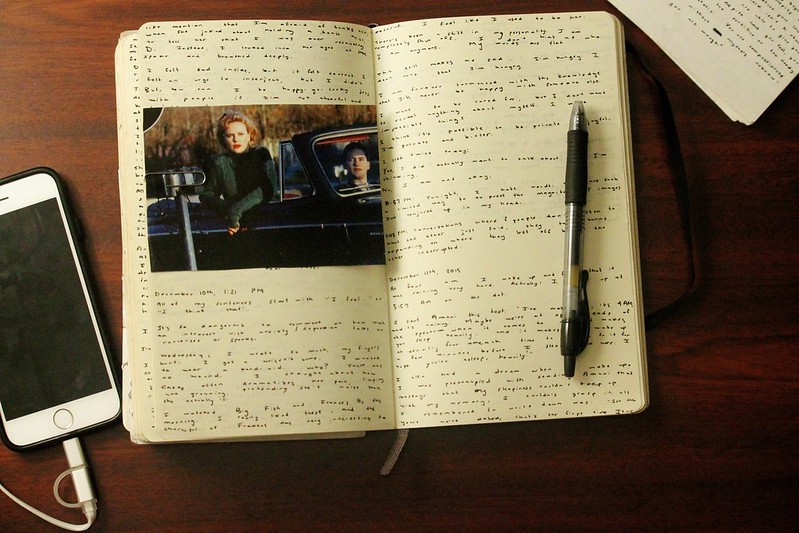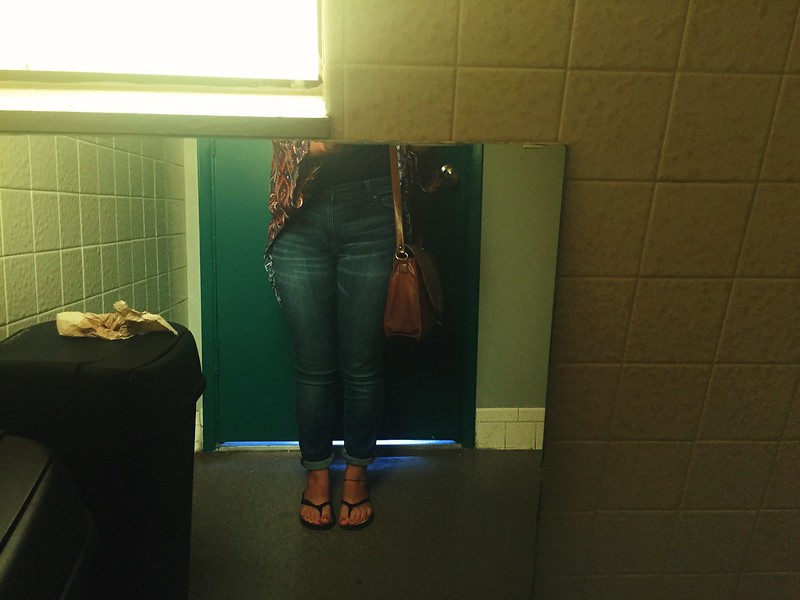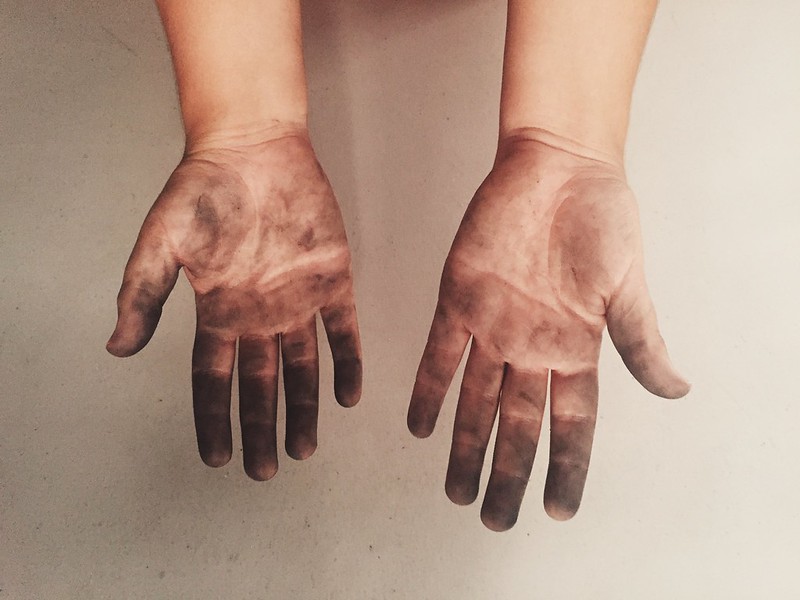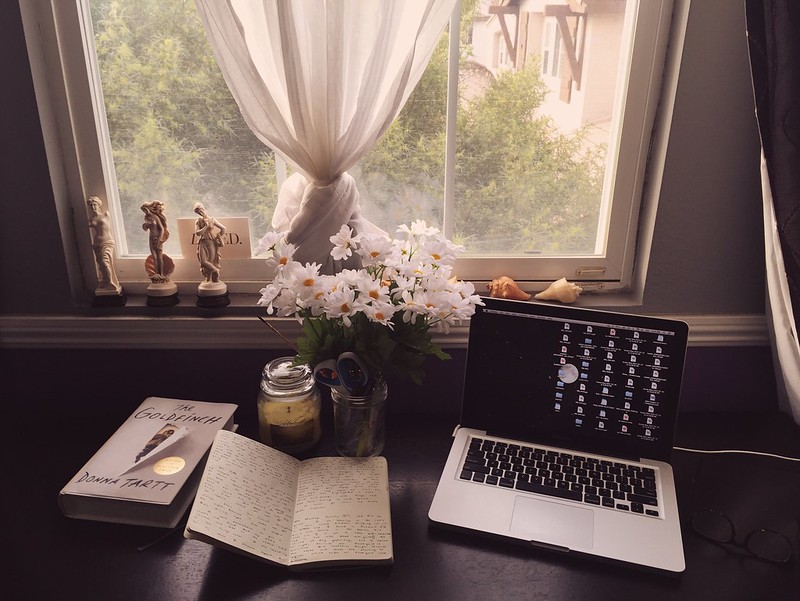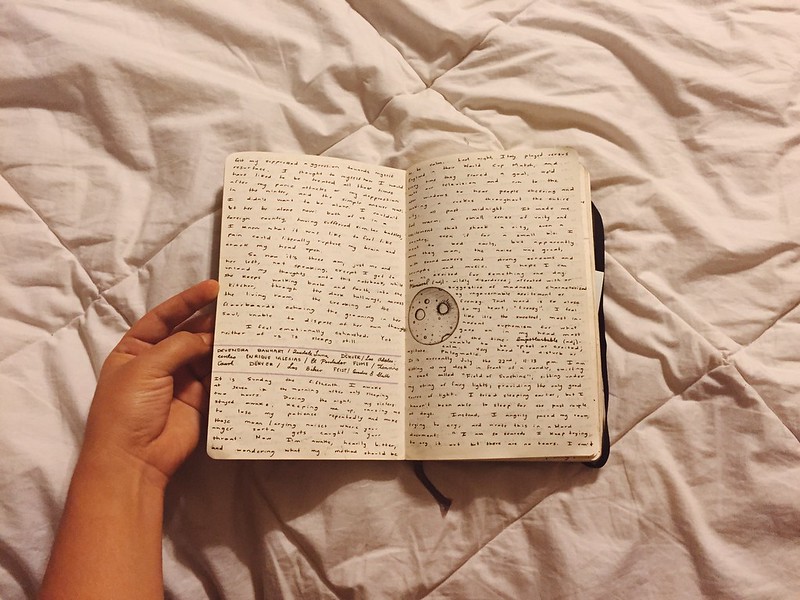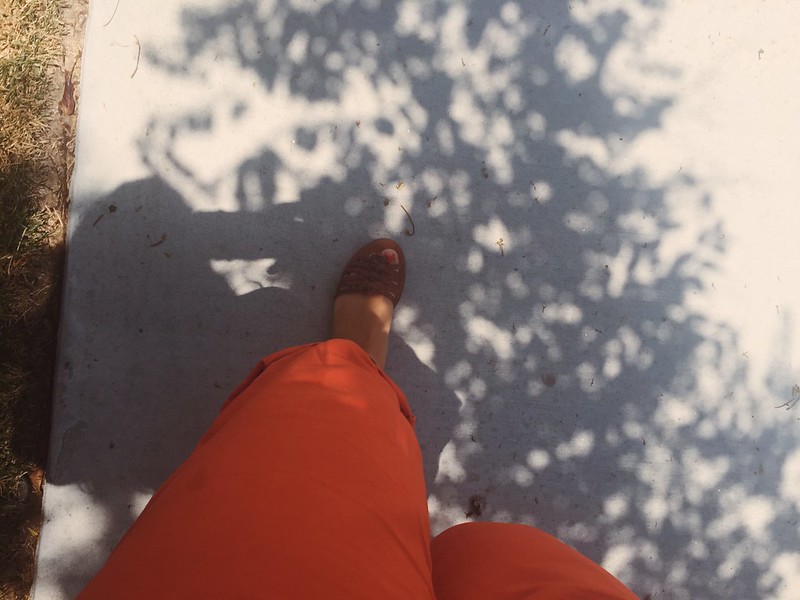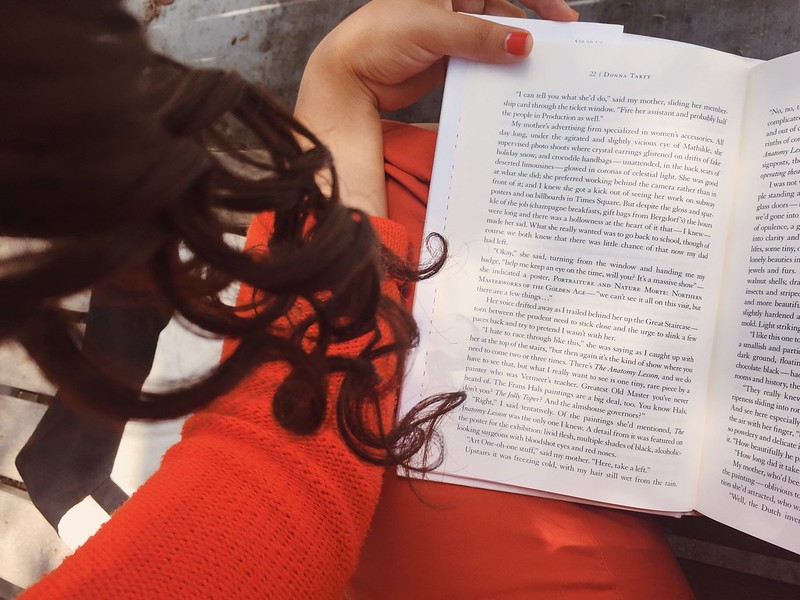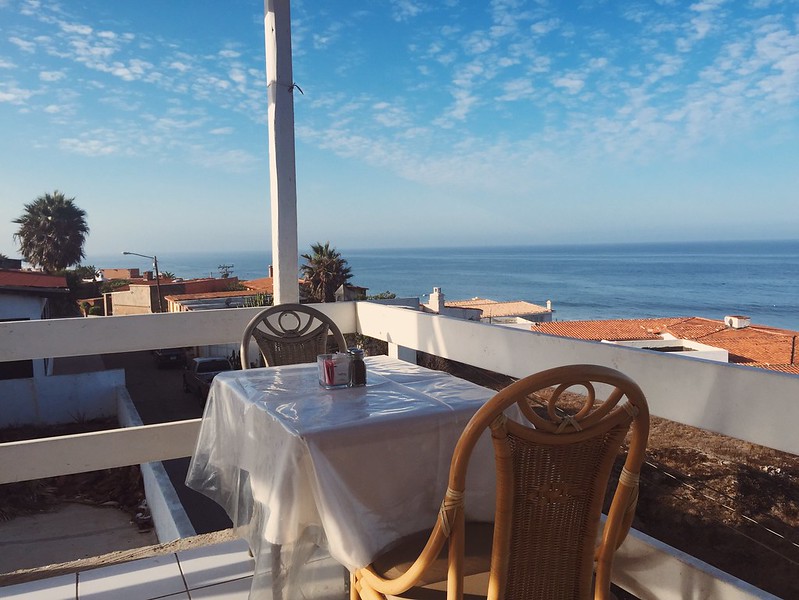The view outside my bedroom window in San Diego, California
Over the weekend, I visited my grandmother in Los Angeles.
I don't see her often. Over the years, she made some attempts to keep a familiarity between us, like remembering my birthday every year (then every other year), but I wasn't able to love her like I love to love: I never had the opportunity to love her specifics, or the way she holds books while she reads, or the way she hosts parties. So I missed her from afar.
Being in her home two days after Christmas, I take in as much as I can. Every lampshade and candlestick, every noise I hear, every fabric I feel: maybe I could burn them into my memory, keep these as treasures, store them in my head for whenever I feel like recalling the atmosphere she creates.
My grandmother opens her mouth wide when she laughs, as if she's surprised at herself for saying something so deliciously against the norm of conversation. My grandfather has a voice that melts me every single time I listen to it. I see him once every two years, and I always think it's much rougher than it actually is. He lets me kiss him on the cheek to greet him, and he taps my back awkwardly with his right hand, the hand that has two of his fingers missing, which he had taken from him in a maquiladora accident.
I make note of the fact that their house seems smaller than it did when I was a toddler. I thought it was endless, a myriad of undiscovered places and rooms I wasn't allowed in. Now it feels like each floor is one big room with tinier designated spaces separated by walls.
I don't visit the house often, but I know exactly where everything is. I know which shelf the outdated picture of my sisters and I sits. I know which drawer the cutlery is in. I remember the secret passageway I used to go through on the side of her house, where the palm trees and the banana leaves grew into each other, making a green ceiling. I'd hide there, pretending I was lost in a jungle, until it was time to leave.
I pay attention to the way my grandmother tells stories. She captivates everybody. She is the master of The Conversation. She asks the questions, people respond to her. The responses are short on my part at first, because I selfishly don't want to reveal anything about myself. But then she starts asking more personal questions that I have to lie to, and I wish I didn't have to lie. And I wish I was able to be 100% transparent with her. I regret keeping mum during the simpler questions before.
My grandmother tells us a story about the time her and my tata met. She also tells us her about her experience meeting the Pope in Washington D.C. earlier this year. She continues to be the master of The Conversation. When the chatter dies down, she asks someone else a question. My mother makes the mistake of trying to become the master of The Conversation by expanding on a story. But she is, unfortunately, interrupted--my grandmother becomes the master again. She interrupts my mother's story with a personal anecdote of her own. There are no hard feelings; it is just the way the world is meant to be. My grandmother was not meant to be on the receiving end of a talk.
We're all sitting in my grandmother's living room. I sit next to the fireplace. It exudes an intense heat, which I'm grateful for because I'm wearing a short skirt and kitten heels. I don't know if it's the warmth of the fireplace or my growing melancholia, but I begin to feel sleepy. I grow intensely quiet. I stare at the carpet while I listen to my family exchange memories.
Delivered Italian food arrives. We eat pizza, and pasta, and chicken wings, which strikes me as completely informal and contrary to my idea of how seriously my grandmother takes the idea of guests in her home. I silently eat and listen to the adults speak. I, of course, am also an adult-- but nobody there sees me as an adult. How could they-- the more acute memories anyone in that house has of me is me as a child.
I slip away from the commotion in my grandmother's kitchen and I sneak into her backyard. I have a view of the Los Angeles skyline. I take pictures. I feel happy. I feel good seeing a pink sunset. It feels familiar, it feels like my house back in San Diego. I pretend that this means that maybe my grandmother and I are connected after all.
I hear them all laugh inside. My heart softens. I am pleased that my father is getting along so well with his parents.
☾
I am back in a hotel room later that night. I am very quiet still. I'm not sleepy. I'm just sitting. My sisters and I are all barefoot and we're listening to disco music coming from the speakers of one of our phones. After a while I stop feeling sorry for myself and I dance, too. I look at myself in the mirror, having fun, and I decide that it's true that a smile is the best accessory. I accept that I look pretty having fun. I make note of this.
The next day, we must leave Los Angeles. My sisters and I eat complimentary breakfast at the hotel. The entire time we eat, I can't focus on the conversation at the table. Instead, I'm thinking about how breakfast in hotels scare me. It seems I've had more anxiety-induced episodes in hotel breakfasts than I should have to count. I can't concentrate. Instead, I'm wondering whether I'm going to have an episode this time around. My guard is up. I am on edge. I get sensory overload. The scraping of a knife on a plate, the clanking of forks, the loud chatter, the chewing, the warmth of too many people, it becomes too much. I become easily irritated. Suddenly, a darkness takes over me. A sadness, a heaviness, in which I attempt to have a pity party. But I don't know what I'm pitying-- there's nothing to complain about. I try my hardest to connect my dissatisfaction to something. I wonder whether there was something wrong last night that I missed. I begin to scavenge my brain for anything negative that occurred the night prior to attach all my dark energy, so that it can make some sense. I can't find anything. I attach my darkness to my inability to find any meaning in my darkness.
☾
As I write this, I'm sniffling because of a flu I acquired all thanks to hotel air conditioning, I suspect. I'm thinking about how lucky I am to live in San Diego rather than Los Angeles. I'm thinking about how I don't want to have an overbearing darkness within me. It's five in the afternoon, the sun is setting. The sky is hot pink and orange. Familiarity. Connection. A pattern.
I was giggling happily earlier today. Now I'm solemn. Trying to make myself happy seems fake. I need to give myself space to be sad. But how big should this space be? How long should I allow myself to be in it? I'm tired. My body is weary. I don't want to carry this sadness any longer.
The lobby of a hotel I visit twice a year
Chucks
The view from the room
So many palm trees
Bloody Los Angeles sunset
A home
Someone wealthy lives up there
Avoiding revisiting myself

